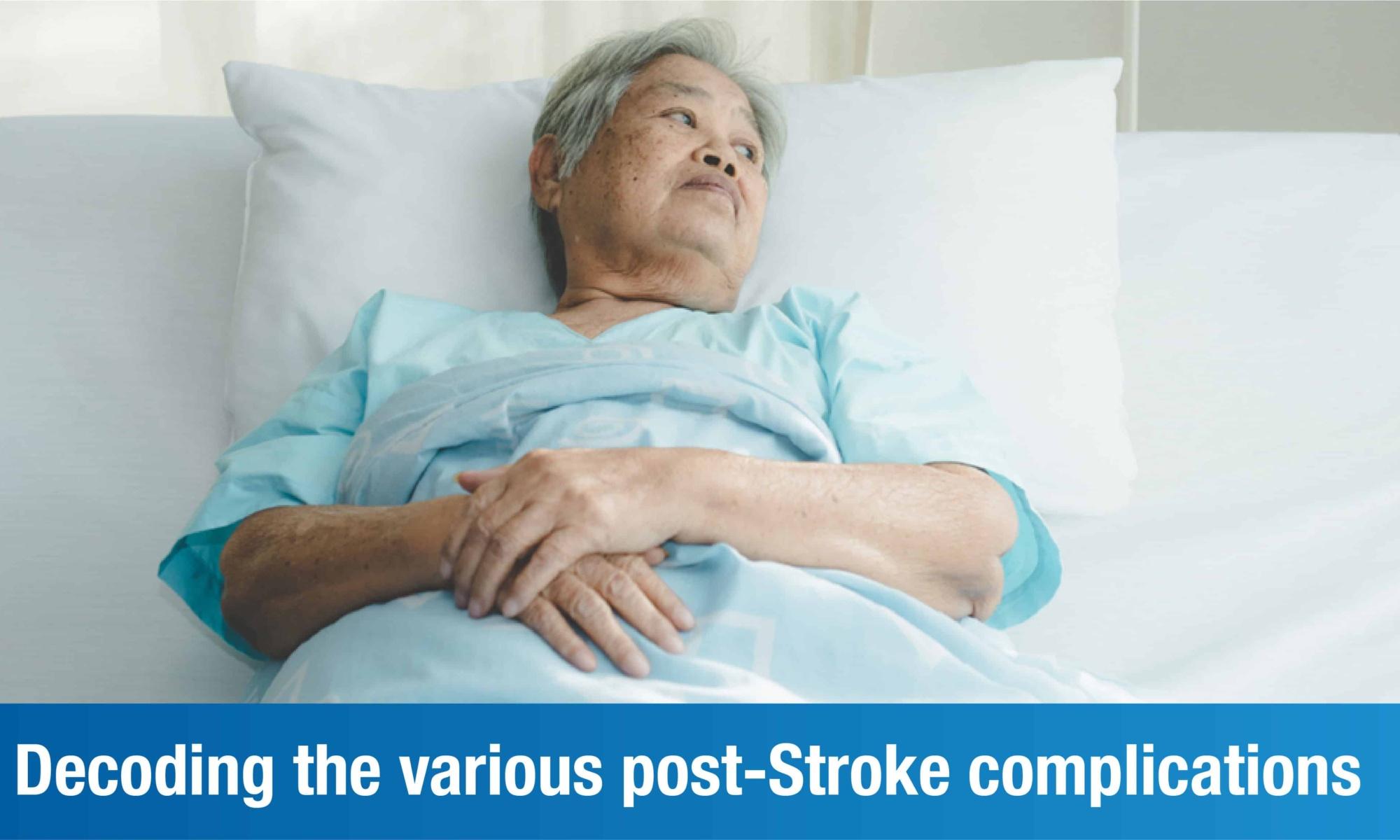
A Stroke is a medical emergency in which prompt treatment is the need-of-the-hour. If not treated properly, a patient can suffer from severe complications after a Stroke. Both Ischemic Stroke and brain Stroke complications need careful attention and care to avoid long-term damage.
Here’s a quick guide to a few post-Stroke complications that you and your loved one need to look out for!
What is a Stroke?
Also called a cerebrovascular accident, a Stroke is a type of brain damage caused by an interruption in its blood flow. It occurs when the blood supply to a part of your brain is interrupted or reduced, preventing the brain tissues from getting oxygen and nutrients. When this happens, the brain cells begin to die.
There are two main types of Stroke — Ischemic Stroke and Hemorrhagic Stroke. While an Ischemic Stroke occurs when a vessel conveying blood to the brain develops a clot, a Hemorrhagic Stroke occurs due to a leaking blood vessel in the brain. Both of them involve the risk of post-Stroke complications — be it medical or emotional.
Complications from Stroke
The complications of Stroke patients depend on their age and health at the time of the attack as well as the location and severity of the attack. Here are some of the common complications of Stroke that patients and their loved ones should watch out for:
Seizure
A seizure is one of the most common complications after an Ischemic Stroke, caused due to an Injury to the brain that occurs during the Stroke. It can damage the scar tissues and disrupt electrical activity in the brain — leading to a seizure.
Pneumonia
Pneumonia is one of the major causes of post-Stroke complications and death. It occurs due to difficulties in swallowing among patients who have experienced a Stroke.
Bladder problems
It is one of the most common complications of a Stroke. Although it is not fatal, it can cause day-to-day discomfort in the patient. Bladder problems can also lead to urinary retention, and this may lead to the patient requiring a catheter.
Cerebral Edema
Some of the complications of Ischemic Stroke can be particularly difficult to deal with. Cerebral edema, for instance, refers to a swelling in the brain due to trapped fluid inside it. This swelling could potentially cut off blood supply to the brain. Avoiding cerebral edema requires careful monitoring of after-Stroke symptoms to spot early warning signs.
Deep Vein Thrombosis (DVT)
It is perhaps the most serious of the medical complications after a Stroke. Blood clots that form in a vein, owing to blood moving too slowly, can lead to DVT. If the blood clot gets dislodged and starts moving towards the brain, it could potentially be fatal.
Depression
Clinical depression often occurs as part of the post-Stroke complications. The patient may feel sad and hopeless, change their eating and sleeping patterns, or even think about committing suicide. Counseling and psychiatric treatment can help with depression.
Contractures
Late complications of a Stroke commonly include physical disabilities such as contractures. The loss of mobility that often follows a Stroke leads to joint stiffness, pain, and eventually an abnormal shortening of the muscles or ligaments. Physiotherapy helps to relieve contractures and improve the range of motion.
In conclusion, having a clear idea of what happens after a Stroke will help you spot the early signs of post-Stroke complications and get appropriate treatment as soon as possible. Physiotherapy, Occupational Therapy, nutrition, Speech Therapy, psychological counseling, and assisted living can all come together to address the common complications of a Stroke.










